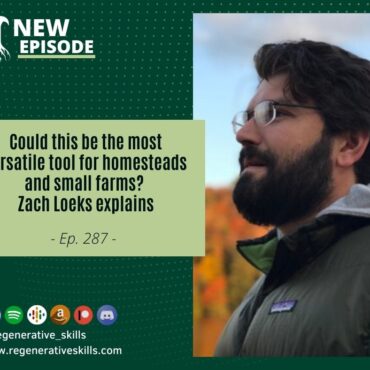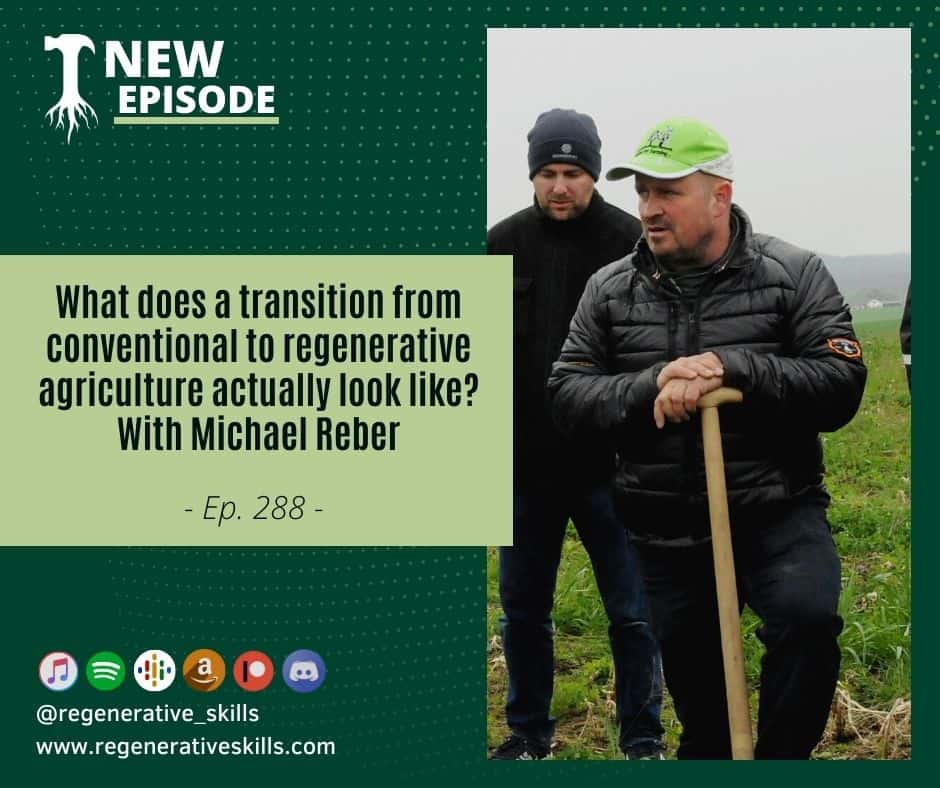
Could this be the most versatile tool for homesteads and small farms? Zach Loeks explains
Many of you will remember my guest today from the three other interviews I’ve done with him over the years. Zack Loeks is a good friend and a maverick of […]


Today’s interview has been in the making for me for a couple years now. I first got to know Michael Reber through the pioneer program with Climate Farmers that I directed two years ago. Through that program we guided farmers from around Europe through existing online regenerative farming courses and helped them to adapt the information and techniques to their own businesses and contexts. By this point Michael had already gone through a few major transitions on his own farm and was in the process of diving deeper into soil health and improving the soil function on his 200 hectare grain and silage production operation in the south of Germany. During this period and through events like the Climate Farming conference that we hosted for the last two years, I got to know Michael’s remarkable story and see his farm in person.
Since a large part of what I do is centered around communicating with farmers in Europe to understand their needs and challenges in their transitions toward regenerative management of their farms, stories like Michael’s are so important to highlight. There are many specific parts of what he and his family have been through that are very unique, but through all of it I hear similarities in the journeys that other farmers are on as well. The patterns of disruption in the business that cause people to reevaluate their priorities. Internal disputes that set us on a different trajectory. Daily learnings and the patience needed for observation and understanding to accompany us on our learning journeys, and other events like this resonate with so many of us, not only farmers.
Despite Michael’s self consciousness about his level of English, he does a remarkable job in this interview in giving me a window into the changes and adaptations that have brought him and his farm to where they are now as well as the difficulties they’ve had in the past and still have in getting their land on a regenerative trajectory. As much as the details about soil health and the techniques he’s been trialing and the results they’ve achieved, I love the human side of his story that I know many of you listening will connect to as well.
Links:
Join the Climate Farmers Community
Michael’s Podcast: https://bodenundleben.podigee.io/feed/mp3
Web: https://innovativelandwirtschaft.de
Facebook: https://www.facebook.com/Landwirtschaft.Reber/
Twitter: https://twitter.com/MichlReber
Instagram: https://www.instagram.com/michael.reber/
YouTube: Innovative Landwirtschaft Reber

Many of you will remember my guest today from the three other interviews I’ve done with him over the years. Zack Loeks is a good friend and a maverick of […]
Copyright Regenerative Skills 2021
Post comments
This post currently has no comments.